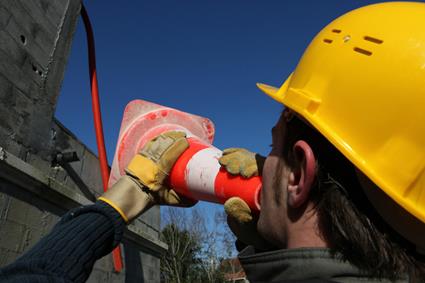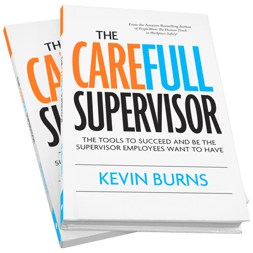Employees don’t want your smartest person to run the safety program. They want the one with the best leadership skills.

Historically, Google has been the catalyst of many changes in how we view and access the knowledge of the world. But it was in 2009, in a study that Google did internally in an effort to develop better managers, that they made a finding that every single safety manager should be paying attention to.
Google’s Project Oxygen gathered over 10,000 employee observations across 100 management variables looking specifically for the traits employees want their managers to have. The findings, although they might seem head-slappingly simple, were not what Google was doing at the time. It is also what safety managers and supervisors need to pay attention to right now:
Top 8 Manager Traits:
- Is a good coach
- Empowers the team and does not micromanage
- Expresses interest/concern for team members’ success and personal wellbeing
- Is productive and results-oriented
- Is a good communicator – listens and shares information
- Helps with career development
- Has a clear vision/strategy for the team
- Has important technical skills that help him/her advise the team
The first seven of the traits have nothing to do with technical expertise and everything to do with interpersonal communications, leadership and management skills. Only the eighth trait has anything to do with experience or expertise. And here’s where safety gets it wrong consistently. They promote or advance the most senior worker or an injured worker into a position of safety management and then offer no actual management skills training.
Why Smart Doesn't Matter
It is one thing to amass extensive knowledge in safety procedure and process. It is a very different set of skills to be able to communicate all of that knowledge in a way that effectively makes the employee want to choose safety for themselves - to buy-in. Your best player is not always your best coach. And, according to Google, the first trait that employees want is a good coach (tweet this).
Knowledge in safety is a given for safety managers. In fact, knowledge is a requirement to be able to direct workers to comply with the OH&S code. That’s why so many workplaces require their safety people to be certified in safety.
But safety management is made up of two parts: safety and management. And if you don’t have the skills of the second part, having skills in the first part seems rather pointless. Employees don’t want your smartest or most experienced person to run the safety program. They want the one with the best interpersonal and leadership skills.
Here are three strategies for safety managers to immediately begin to develop their leadership skills:
1Read A Book - it seems simple, but it is astounding how people stop learning once they get the title. 80% of American families did not buy a book in the past year. 70% of Americans have not set foot inside a bookstore in the last 5 years. So it would seem logical that the bar for separating yourself from the pack is set fairly low. Read a book on leadership or communication skills, and you are already ahead of 80% of the population.
2Ask A Question - assumptions are the death knell of effective leaders. You can’t assume that you know what your people will respond favorably to. You have to ask them. In fact, ask each of your people one-on-one how they would like to be managed (leaving them alone is not an option) and then do only that. When you are managing people the way they want to be managed, why would they leave your workplace to go somewhere else? They have you trained just the way they want it.
3Invest In Yourself - let’s be clear, if you haven’t been offered any opportunities to take management and interpersonal skills courses on the company dime, you can expect that they aren’t interested in helping you. So it’s up to you. Competence is the level you will be trained to. Excellence (mastery) is a personal choice beyond that. Wipe the cobwebs off of your wallet and invest in yourself. By doing so, you make yourself more attractive to other companies if your current employer is not interested in help you deliver better safety programs.
You don’t need to be the smartest person to be the most effective safety manager. The most effective safety managers and supervisors are the ones who can communicate with employees in a way that makes the employee want to be better. That takes leadership and coaching - not the score you got on a safety course.
Download my free e-book below, 7 Nuts'n Bolts Strategies for Safety Communication.



